Monero (XMR), launched in 2014, has established itself as a privacy-centric cryptocurrency. Because of its anonymity and privacy features, it is the most used digital currency on the dark web.
The Monero wallet is designed for users to safely store XMR on the Monero blockchain. The use of Monero in the hidden wiki and the dark web raise so much. So, if you are using Monero and plan to store it, we have covered the types of Monero wallets and the best wallets for storing your secret money.
What Is a Monero Wallet?
A Monero wallet is a digital wallet designed to store and manage Monero coins safely. It connects with Monero’s blockchain to simplify transactions, allowing users to send and receive XMR tokens while securing their private keys. Monero wallets are categorized into three main types:
Types of Monero Wallets
- Hot wallets: These wallets are software-based solutions connected to the Internet. They offer convenience and quick access but are more vulnerable to cyberattacks.
- Cold wallets: are offline storage options, such as hardware or paper wallets. It provides excellent security for long-term holdings.
- Custodial wallets: These are services offered by exchanges, where the platform manages the wallet and private keys.
You can choose a wallet based on your needs, such as convenience, privacy, security, and transaction frequency.
Best Monero Hot Wallets
Monero hot wallets are famous for their convenience, particularly for active traders or those usually engaging in transactions. Their availability in desktop, mobile, and web-based formats makes them highly versatile.
1. XMRWallet
XMRWallet is an open-source, web-based wallet specially designed for Monero. Its simple interface makes transactions easy without unnecessary distractions. Most importantly, the wallet operates entirely on the user’s browser, which means all the sensitive data, such as private keys, remains on the local device. It establishes a high level of privacy. However, it is a lightweight Monero wallet, and XMRWallet lacks advanced features like staking or multi-currency support.
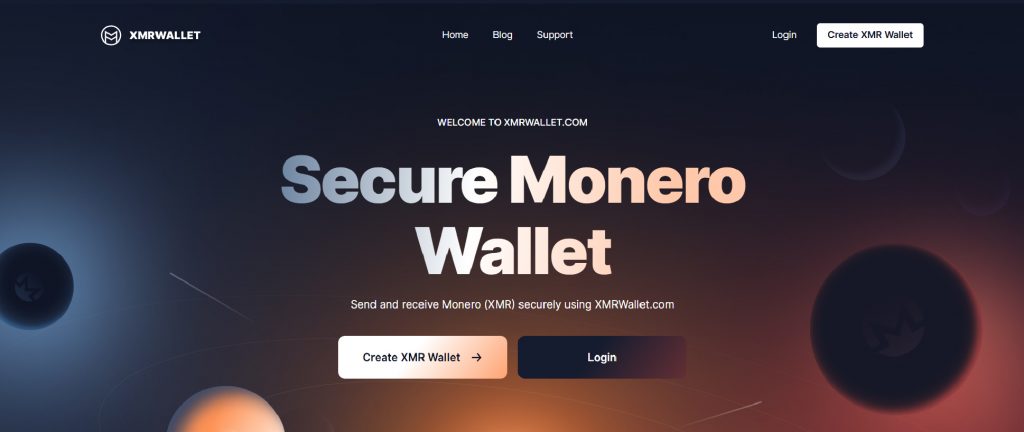
2. Exodus Wallet
Exodus Wallet is a multi-currency wallet known for its user-friendly design and flexibility. It supports over 100 cryptocurrencies, including Monero. Its built-in exchange functionality allows users to swap assets directly within the wallet. Exodus Wallet also adds portfolio tracking features, helping users monitor their holdings’ performance.
Exodus Wallet is a non-custodial wallet, which means users keep control over their private keys. Its lack of open-source transparency has raised privacy concerns. However, its user-friendly interface and 24/7 customer support make it a favorite spot for beginners.
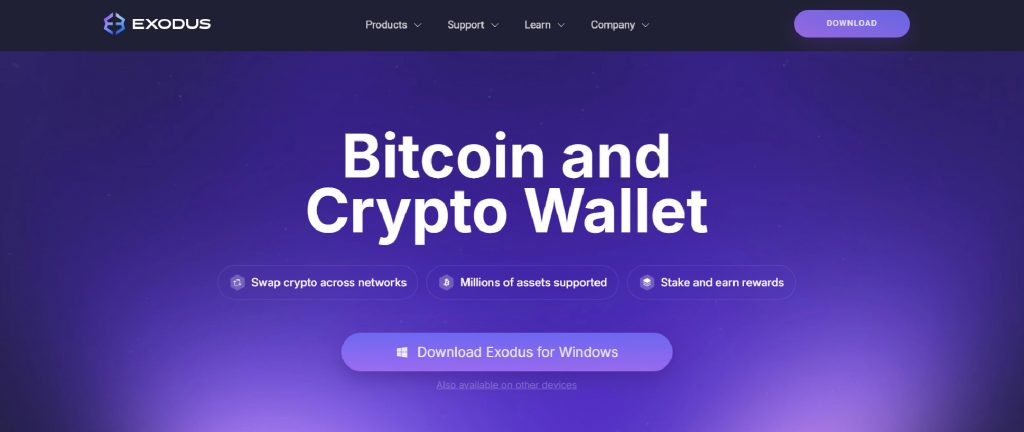
3. Atomic Wallet
Atomic Wallet supports up to 500 cryptocurrencies and offers various features, including buying, swapping, and staking assets. Users have complete control over their private keys, which are encrypted and stored locally on their devices. While Atomic Wallet offers a seamless experience, one potential drawback is the need for more inefficiency in buying Monero directly within the wallet. Moreover, high transaction fees for some features may demotivate budget-conscious users.
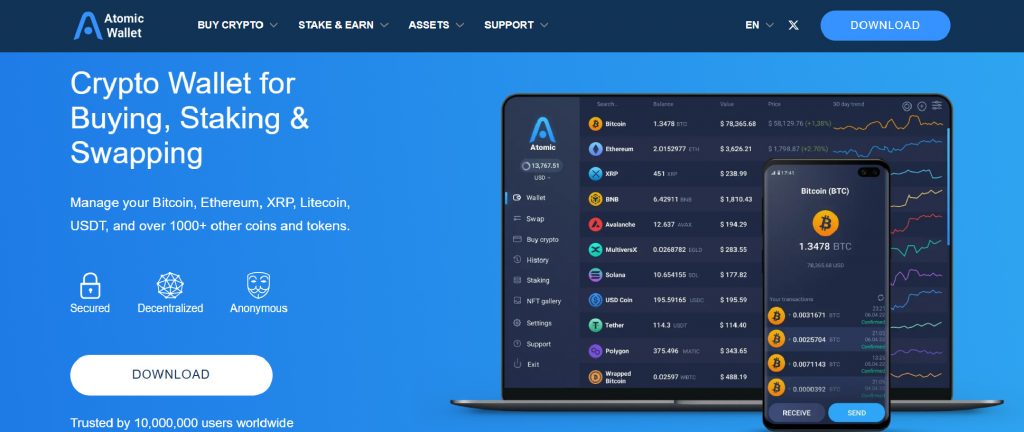
4. Guarda Wallet
Another prominent Monero Wallet is Guarda Wallet, a multi-currency wallet that supports thousands of cryptocurrencies, including Monero. Its interface is paired with advanced functionality, providing services like crypto purchases, staking, and borrowing. However, its transaction fees for in-app purchases are higher than those of many competitors, which could be a flaw for regular users. Guarda Wallet is compatible across devices, including desktops and mobile devices, making it a multi-faceted option for managing Monero.
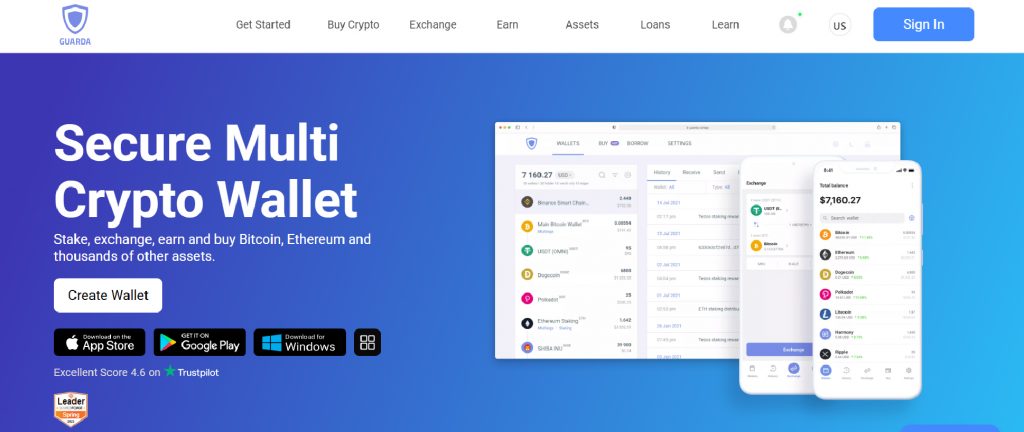
5. Monerujo Wallet
Monerujo Wallet is an Android-based Monero wallet launched primarily for Monero users. It provides options to run your node or connect to a remote node, offering flexibility for advanced and casual users. The XMR to service feature enables users to send Monero to Bitcoin addresses smoothly, enhancing its utility. However, the Moneroju wallet needs more multi-currency support and focuses only on Monero, which might limit its appeal for diversified portfolios.
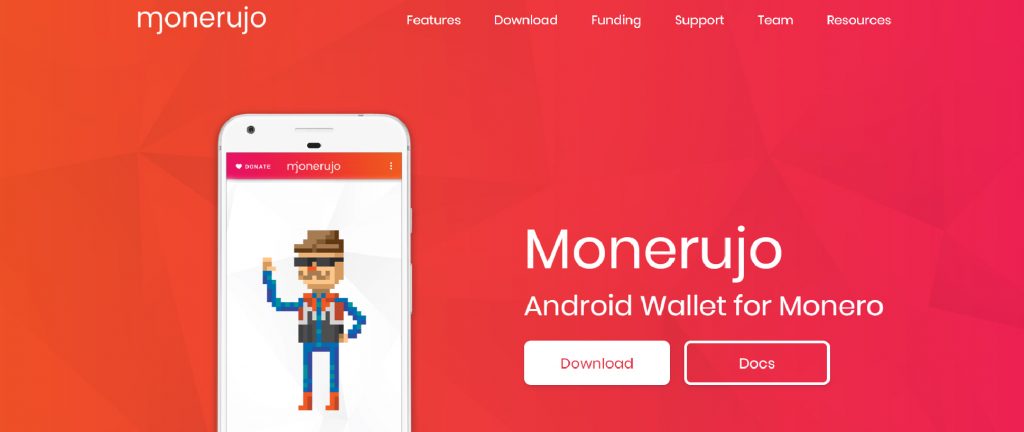
Monero Cold Wallets
Cold wallets are the best choice for users who prioritize security over convenience. They keep private keys offline, protecting them from hacking attempts and other online threats.
1. Ledger Nano X
The Ledger Nano X is an ultramodern hardware wallet supporting over 1,000 cryptocurrencies, including Monero. Its Bluetooth connectivity lets users manage their assets using mobile devices and tablets. To store and transact Monero, users need to integrate the Ledger Nano X with Monero GUI software. The wallet is durable and displays advanced security features, making it appealing for long-term holders. However, its premium price might discourage casual investors.

2. Ledger Nano S Plus
As the most affordable Monero Wallet, the Ledger Nano S Plus offers the same security features but no Bluetooth connectivity and supports fewer cryptocurrencies. Like the Nano X, it requires a connection with Monero GUI to manage XMR tokens. Its compact design and lower price make it an ideal choice for users who are looking for a secure but cost-effective cold wallet.
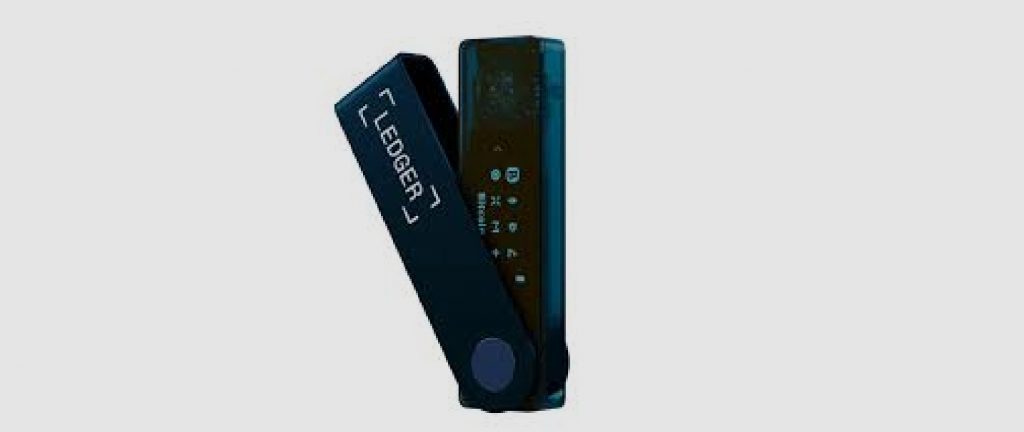
4. Paper Wallets
Paper wallets are physical documents that store Monero’s private keys and public addresses. They are entirely offline, making them unapproachable to cyberattacks. However, paper wallets are sensitive and can be easily damaged, lost, or stolen. Furthermore, transferring funds from one paper wallet to another for transactions can be troublesome, limiting their usage for regular users.
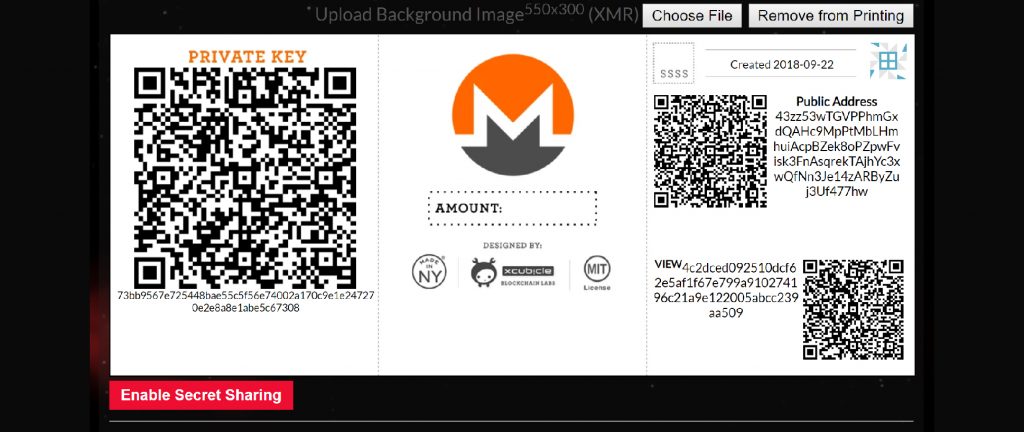
Custodial Monero Wallets
Third-party services, such as cryptocurrency exchanges, manage custodial wallets. These user-friendly wallets are often connected with trading platforms, making them an excellent choice for newbies. However, they have significant downsides for Monero users.
Custodial wallets often require Know Your Customer (KYC) verification, undermining Monero’s core principle of privacy. Additionally, users do not have direct control over their private keys, exposing them to risks if the custodial service is hacked.
While custodial wallets provide convenience and easy access to trading tools, their reliance on centralized platforms makes them less secure and private. As such, these wallets could be better for users who prioritize Monero’s anonymity features.
Key Considerations When Selecting a Monero Wallet
When selecting the right wallet, it involves several factors:
- Security: Hardware wallets like the Ledger Nano X provide excellent security for long-term storage.
- Privacy: Wallets like Monerujo and XMRWallet exceed in maintaining Monero’s privacy features.
- Ease of Use: Wallets like Exodus and Guarda offer a simple and user-friendly interface for newbies.
- Cost: Budget-conscious users might prefer the Ledger Nano S or free software wallets like XMRWallet.
- Functionality: Multi-currency wallets like Exodus and Guarda are suitable for users with diverse portfolios, while Monerujo is ideal for Monero-exclusive users.
Final Verdict
Ultimately, the best Monero wallet depends on your needs, whether you consider ease of access, high security, or complete privacy. By understanding each option’s potential benefits and limitations, you can securely select the wallet that matches your goals.
